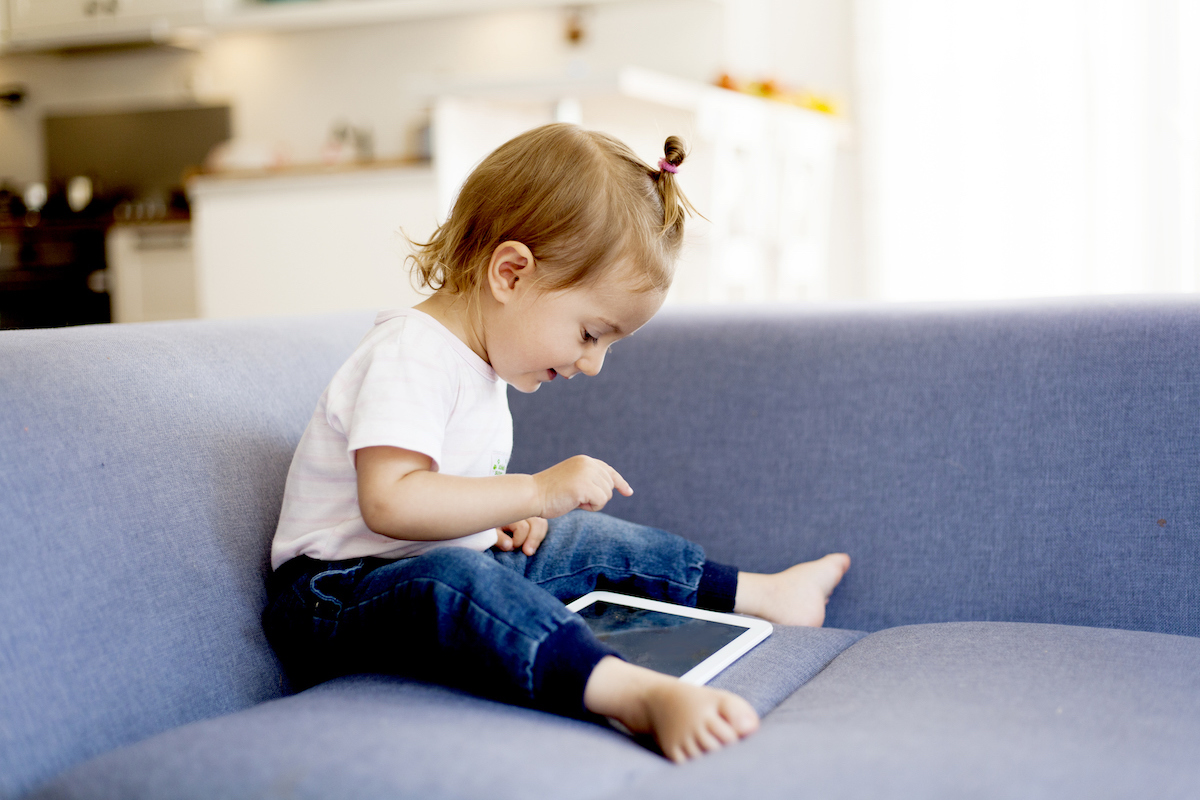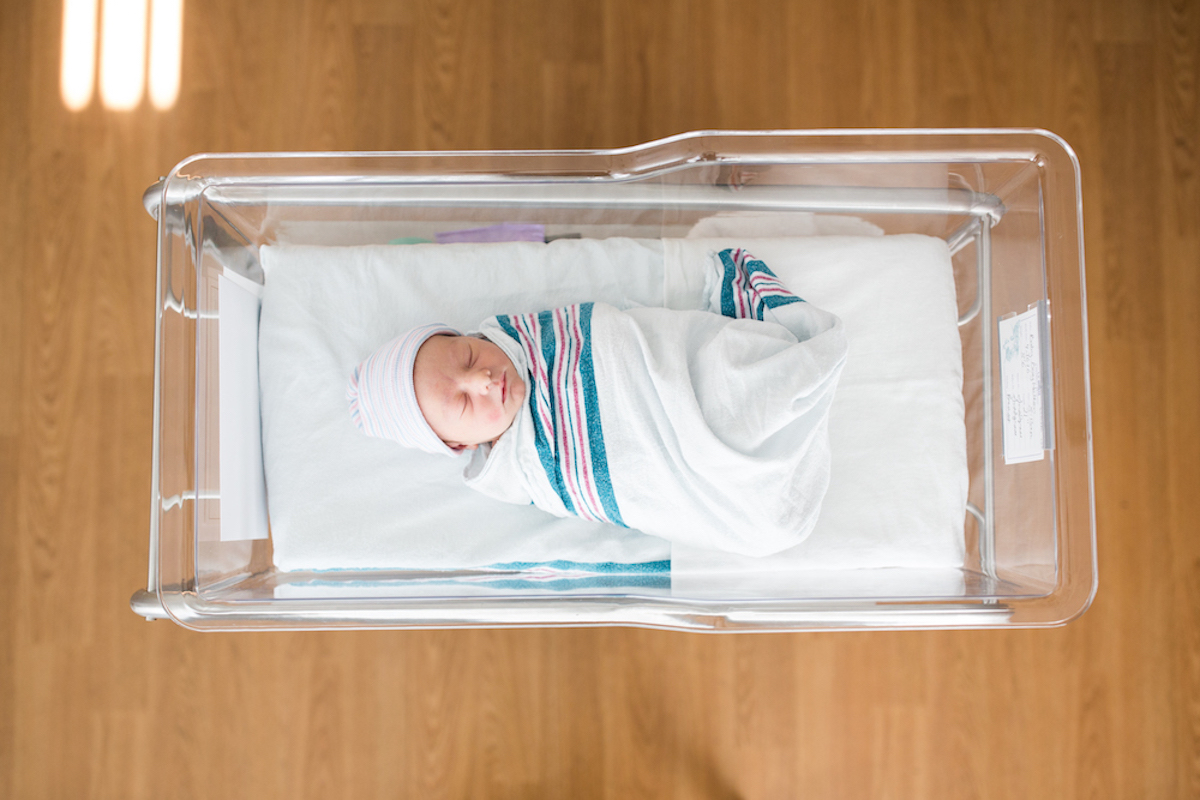I had a slightly ill child last weekend, and it laid bare for me how much more sensitive we have become to kids being sick. An illness that two years ago would barely have merited a second thought now occupies a lot of brain space.
This same added sensitivity has translated to new parenting. The anxiety that always accompanies having an infant has been amplified. People who previously wouldn’t have thought twice about having grandparents or close friends visit their new baby are now wondering if that’s a bad idea. Part of it is COVID, but we’re also worried about RSV and whooping cough and the flu — risks that were around before but are now more salient.
What is a reasonable amount of exposure to give your baby, to other people and the outside world?
Two points before we begin. First, in answering these questions we should put COVID where it belongs, which is in the pot of other illnesses. Babies and kids can get COVID, but in terms of risk of being seriously ill, it’s not a different beast from other diseases. What is true is that there may be more COVID around; we also have better ways to test for it. In all, we should think about these questions holistically and not just as questions about COVID.
And second: Our goal in life is not to avoid children getting sick at all costs. Kids do get sick. It is part of how they develop a healthy mature immune system. It’s not fun, but childhood illness is a part of life. In a way, we have forgotten this, but we cannot forget it forever. While it may make sense to be more cautious with an infant, it doesn’t make sense to try to avoid all childhood illness forever.
With this background, I’ll do three things. First: a brief excerpt from Cribsheet about why we might want to limit germ exposure. Second, some linking of this to scenarios. Third, I’ll talk about the difference between Can I do XX (from an illness standpoint)? and Should I plan to do XX (from a general sanity point of view)?
Germ exposure overview
Virtually all doctors will suggest you try to avoid exposure to illness in the baby’s first couple of months. One reason for this is simply that the smaller the child, the more vulnerable they are to serious complications. But a second reason is that for very young infants — especially those younger than 28 days — medical protocols suggest much more aggressive interventions in response to illness.
If your otherwise well-seeming six-month-old gets a fever — even a pretty high one — and you go to the doctor, they’ll probably look them over, tell you they have a cold or a virus, and send you home with instructions to give them Tylenol and fluids. In fact, many doctors’ offices will tell you not to bring the child in at all unless you are very concerned.
In contrast, if your two-week-old has even a low fever, you’ll need to take them to the hospital, where they’ll be subjected to lab tests — likely including a lumbar puncture (spinal tap) — given antibiotics, and admitted as an inpatient. With very young babies, doctors have a harder time distinguishing between high- and low-risk fevers. Babies in this group are somewhat more susceptible to bacterial infections, including meningitis, which is extremely serious. Somewhere between 3% and 20% of infants under a month old who come to the doctor with a fever have a bacterial infection. These are mostly urinary tract infections, but they must be treated, and reasonably quickly.
The aggressiveness of treatment varies a bit with the age of a child — babies between one and three months sometimes warrant less aggressive treatment if the illness cause is obvious (for example, if you know they got a cold from a toddler sibling). After three months, treatment moves to the older-baby approach.
How does this all relate to the question of germ exposure?
The big downside of being exposed to germs — or specifically, to sick kids — during these early weeks is the possibility of setting off this chain of interventions, including the spinal tap. If your infant does get sick, these procedures are valuable, but if they just caught a cold from being pawed by a germy 2-year-old, you’ll be doing a lot of interventions for no reason. It’s therefore better to keep the germy 2-year-old away from the newborn if at all possible.
Once your baby is over three months, treatment of a fever is closer to what you’d expect with an older child: give them some Tylenol, keep them hydrated, and wait for it to go away. At this point, the downside of germ exposure is simply a sick kid, not a cascade of invasive testing.
Translating to behavior
This discussion suggests more caution about germ exposure in the first weeks of life than later. Exposure to germs at even slightly older ages is inevitable and, very likely, a good idea. The first weeks should be treated slightly differently.
Having said that: this does not mean you need to be locked in your house. If you are so inclined to go out to brunch and have your sleeping baby in a car seat next to you or in some kind of baby sling, their possible germ exposure is minimal. If you want to take a walk or go sit on the beach with your baby, you can do that! If you want to take your baby and wander around the grocery store, that is, again, a low-exposure situation. I know some people will say: What if there is COVID in the air and it lands on my baby? The fact is that this is just really, really, really statistically unlikely.
The most significant exposure risks are from seeing other people at home — family, etc. These interactions are not infinitely risky, but they do pose more risk than a walk or a trip to the grocery store, since they involve closer interaction. The primary rule here is, I think, simple. Try to lower the risk to the extent possible. This means: no sick visitors; hand-washing; ideally vaccines for diseases with vaccination (COVID, flu, Tdap); rapid testing for COVID. Limited visitors early on. Grandparents, aunts, and uncles may be very important. Your next-door neighbor can maybe wait until the baby is a bit older.
(Final point: kids. Other kids are more likely to have childhood illnesses, so they warrant a little more caution. That doesn’t mean pulling your toddler out of child care. It means, instead, making sure that the kids stay apart if the toddler is sick, and perhaps limiting older cousin and friend exposure until a few months in.)
All this is to say that you can plan to do stuff, just with a little added caution in the first months. But just because you can doesn’t mean you should.
Should you plan to do stuff?
Very common question in my inbox: “I’m pregnant. My friend is getting married across the country when the baby will be five weeks old. Can I go?”
These are nearly all first-child pregnancies, and the detailed questions that fill the rest of the email are all focused on illness. Is it safe for the baby to be on a plane? What about COVID? And so on. These emails are looking for a version of the answers above.
These questions, in my view, completely miss a lot of the actual problems with this plan. The main problem is that it is extremely difficult to evaluate from the standpoint of pregnancy what it will be like to have a baby. You’re imagining going to the wedding with your baby sleeping in an adorable baby sling, color-coordinated with your slightly loose but still very flattering dress. You’re popping into the corner to quickly nurse the baby back to sleep beneath the (very chic) nursing cover. Then you’re sipping champagne and laughing and laughing.
This could totally happen!
What could also happen, though, is that you might spend the wedding walking around bouncing the baby and going “shh – shh – shh – shh” in a rhythmic pattern while you try to jam the pacifier in her mouth so she does not disrupt the ceremony. Then you might struggle to nurse her in a hot closet in the reception restaurant, mascara-tinged sweat dripping onto the silk crepe dress that you thought was a good idea but was obviously not. You might end the night walking up and down the halls of the hotel, bouncing and singing the same song on repeat, having missed the entire reception, hoping desperately that if you just do not look at her while you bounce, the baby will finally fall asleep. I’m not necessarily saying that this happened to me, but I’m also not necessarily saying it didn’t.
My point is that both your baby and your experience of having a baby are unpredictable, even more so the first time around. There are reasons to be cautious or tentative about plans you make with an infant, since you just do not know. Should you plan to host 25 people at your house for Christmas with a three week-old? Probably not. Not because of COVID! But because you just do not know how you will be doing.
This issue isn’t limited to pregnancy planning. It also happens when one is wrong about how much better things will be in a few months. During my daughter’s first year of life, we made a number of mistakes that were driven by overestimating our capacity to do things the way we did before. We’d think, “Oh sure, we wouldn’t want to do [this activity] right now, but in three months, I’m sure it will be fine.” Often, it wasn’t. We eventually changed strategies to simply ask: “Would we want to do this now?” If the answer was no, we said no.
I am perhaps over-weighting my own mistakes. But I’d urge you to take a bit of this advice. Life with a little baby is great, but it can be hard. Think carefully before you add a destination wedding to the mix.
Community Guidelines
















